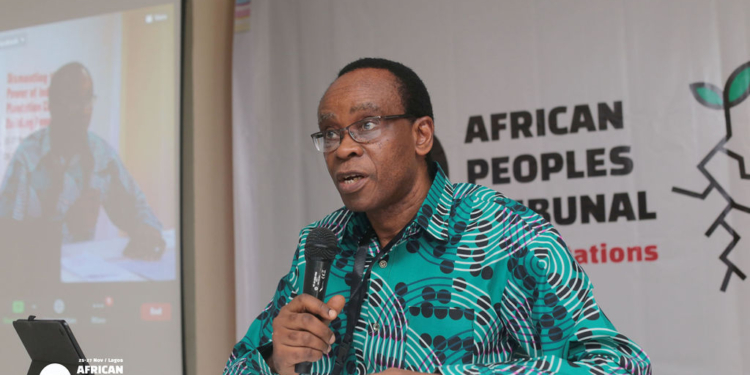The Director of the Health of Mother Earth Foundation (HOMEF), Dr. Nnimmo Bassey has warned the Lagos State Government to stop using development as a ploy to grab and displace the residents of waterfront communities across the state.
Dr. Nnimmo Bassey said this in relation to the ongoing dredging of the lagoon and waterfronts in Makoko, a fishing community located in the Yaba Local Government Area of the state, without due consultations or plans for resettlement for the residents.
The HOMEF Director demanded that the Lagos State government and the contractors should stop the dredging of Makoko waterfront and listen to the teeming population of the residents.
Bassey said “there is a need for government to have open conversations with the people who have deep knowledge of the environment and have made massive economic contributions to the State. The idea of using development as a foil for grabbing waterfronts, displacing and destroying the lives and cultures of the people must be halted.”
He also added that “Makoko and other underserved communities in Lagos and elsewhere in Nigeria, deserved to be upgraded with an adequate supply of social services and not displaced for the benefit of land speculators and other forces of accumulation by dispossession.”
The dredging according to HOMEF has destabilized the natural equilibrium of the lagoon ecosystems and is impacting the people’s livelihoods and raising the spectre of flooding which could ultimately lead to the permanent displacement of the inhabitants of Makoko.
HOMEF believes that flood-prone cities such as Lagos should cease the acts of so-called land reclamation as such activities worsen the crisis and reduce the city’s climate change resilience. Wetlands must remain wetlands and people who have kept such ecosystem balances should be supported and not criminalized or victimised.
Makoko community members fear that the dredging and land reclamation will have serious consequences arising from the blockage of canals and subsequent flooding that may affect other adjacent communities. The activities may also pose direct threats to food supply in the megacity.

